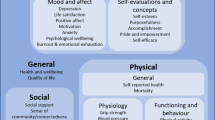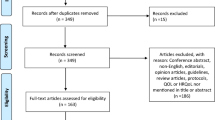Summary.
Objectives: To determine the direction and magnitude of participation bias in end-of-life research.
Methods: Within the framework of a European survey on medical end-of-life decisions, a non-response study was conducted among physicians in Denmark, the Netherlands, Sweden and Switzerland. People were asked about their attitudes and experiences in the area of medial end-of-life decision. The response rates ranged from 12.8% (Netherlands) to 39.4% (Switzerland). The responders (n = 5 403) and the non-responders (n = 866) were compared regarding socio-demographic characteristics, experiences with terminal patients and agreement with attitudes towards “end-of-life decisions”. The reasons for non-participation to the study were analyzed.
Results: Non-response did not cause socio-demographic distortion, but non-responders had statistically significantly fewer terminal patients than responders. Agreement rates were statistically significantly higher among responders than among non-responders for euthanasia, non-treatment decision and life-preserving statements. Neutral answers were statistically significantly more frequent among non-responders than among responders for life-preserving and euthanasia statements. The most commonly mentioned reason for non-participation was “lack of time”.
Conclusion: Non-participation does cause an overestimation of proponents of life-shortening, as well as of life-preserving end-of-life decisions. Non-responders more often have ambiguous attitudes towards end-of-life decisions than responders.
Zusammenfassung.
Antwortende und Nicht-Antwortende in einer Studie zu medizinischen Entscheidungen am Lebensende in Dänemark, Holland, Schweden und der Schweiz
Fragestellung: Richtung und Ausmaß von Teilnahmeverzerrungen in der Sterbehilfeforschung sollen bestimmt werden.
Methoden: Im Rahmen eines europäischen Forschungsprojektes zu medizinischen Entscheidungen am Lebensende wurde bei ärztinnen und ärzten in Dänemark, Holland, Schweden und in der Schweiz eine Non-response Studie durchgeführt. Die Personen wurden nach ihren Einstellungen zu und Erfahrungen mit medizinischen Entscheidungen am Lebensende befragt. Der Rücklauf reichte von 12.8% in Holland bis zu 39.4% in der Schweiz. Antwortende (n = 5 403) und Nichtantwortende (n = 866) wurden hinsichtlich soziodemographischer Merkmale, Erfahrungen mit sterbenden Patientinnen und Patienten und der Zustimmung zu Einstellungen gegenüber Entscheidungen am Lebensende verglichen. Im Weiteren wurden die Gründe für die Nicht-Teilnahme an der Hauptbefragung untersucht.
Ergebnisse: Nicht-Teilnahme führt zu keinen soziodemographischen Verzerrungen, jedoch betreuten die Nichtantwortenden in Holland, der Schweiz und allen vier Ländern zusammen signifikant weniger sterbende Patientinnen und Patienten als die Antwortenden. Die Zustimmung zu den Statements über aktive Sterbehilfe und über passive Sterbehilfe wie auch zum Statement zur Lebenserhaltung unter allen Umständen fiel unter den Antwortenden signifikant höher aus als unter den Nichtantwortenden. Hinsichtlich der Lebenserhaltung unter allen Umständen sowie der aktiven Sterbehilfe waren neutrale Antworten unter den Nichtantwortenden signifikant häufiger als bei den Antwortenden. Als häufigster Grund für die Nicht-Teilnahme wurde “Zeitmangel” genannt.
Schlussfolgerung: Die Nicht-Teilnahme führt zu einer überrepräsentation der Befürwortenden sowohl von lebensverkürzenden als auch von lebenserhaltenden Entscheidungen. Nichtantwortende haben häufiger unklare Einstellungen gegenüber Entscheidungen am Lebensende als Antwortende.
Résumé.
Répondants et non-répondants dans une étude sur les décisions médicales en fin de vie au Danemark, aux Pays-Bas, en Suède et en Suisse
Objectifs: Déterminer la nature et l’importance de biais de participation dans la recherche sur l’euthanasie.
Méthode: Dans le cadre d’une recherche européenne sur les décisions médicales euthanasiques, une étude des non-réponses a été réalisée auprès de médecins au Danemark, aux Pays-bas, en Suède et en Suisse. Les questions abordaient les attitudes et l’expérience des médecins face à des décisions euthanasiques. Les taux de réponses varient de 12.8 (Pays-Bas) à 39.4% (Suisse). Les répondants (n = 5 403) et les non-répondants (n = 866) ont été comparés selon leurs caractéristiques socio-démographiques, leurs expériences avec des patients en phase terminale et leurs attitudes face à l’euthanasie. Les raisons d’une non-participation à l’étude ont été analysées.
Résultats: Les non-réponses n’ont pas causé de déformation socio-démographique, cependant la catégorie des non-répondants compte de manière statistiquement significative moins de patients en phase terminale que la catégorie des répondants aux Pay-bas, en Suisse et dans l’ensemble des quatre pays. Le taux d’approbation d’affirmations sur le thème de l’euthanasie active et passive et du maintien de la vie était significativement plus élevé parmi les répondants que parmi les non-répondants. Les réponses neutres sur le thème du maintien de la vie et de l’euthanasie étaient plus souvent apportées par les non-répondants. Le «manque de temps» a été la cause de non-participation la plus souvent invoquée.
Conclusion: La non-participation induit une surestimation des partisans de l’euthanasie, aussi bien que des partisans du maintien de la vie. Plus souvent que les répondants, les nonrépondants ont des points de vue ambigus envers les décisions d’euthanasie.
Similar content being viewed by others
Author information
Authors and Affiliations
Consortia
Corresponding author
Rights and permissions
About this article
Cite this article
Fischer, S., Miccinesi, G., Hornung, R. et al. Responders and non-responders in a study on medical end-of-life decisions in Denmark, the Netherlands, Sweden and Switzerland. Soz.-Präventivmed. 51, 24–33 (2006). https://doi.org/10.1007/s00038-005-0004-x
Received:
Accepted:
Issue Date:
DOI: https://doi.org/10.1007/s00038-005-0004-x




